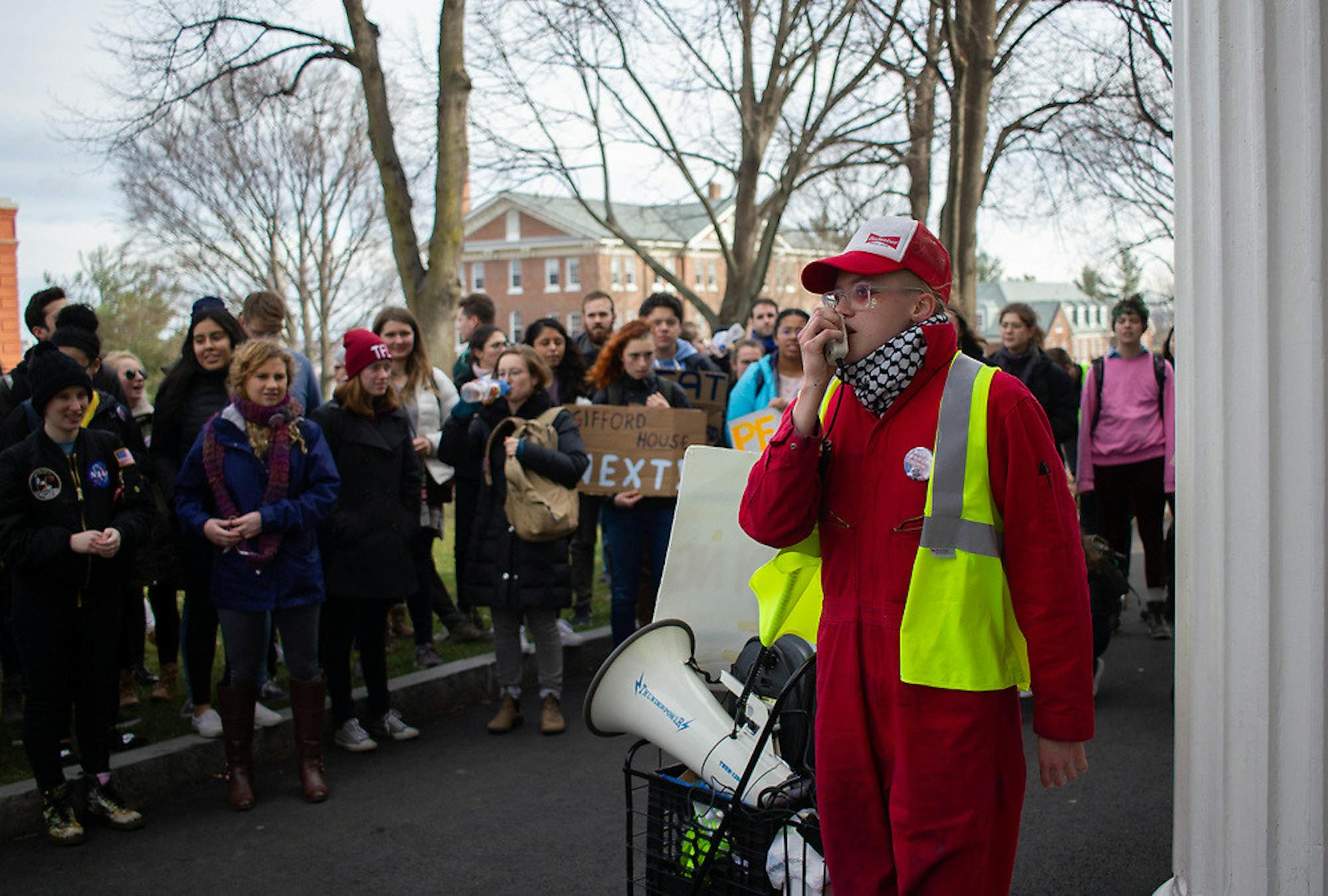Members of the Tufts Housing League (THL) recently met with the mayors of Medford and Somerville to discuss the impact of Tufts' housing policies on their respective cities.
Both meetings took place in the last week of February, and the university was uninvolved in the meetings, according to THL member and senior Nate Krinsky.
THL hopes to meet with University President Anthony Monaco as well, but a planned meeting between the two parties has yet to occur.
THL members Krinsky and Mauri Trimmer say the group met with the mayors to discuss the university's ongoing payment in lieu of taxes (PILOT) negotiations with the two cities, amid the expiration of previous PILOT agreements last June, as well as the school's housing stock.
“We wanted to talk to the mayors because they are the ones who negotiate, and we are their constituents too," Krinsky said.
Medford Mayor Stephanie Burke says her meeting with THL was informational in nature and did not yield any conclusive decisions. She hopes to discuss the university's on-campus housing stock, which has not kept pace with undergraduate enrollment growth, sending more students to live in surrounding neighborhoods.
“The conversation about additional housing is not a new topic," Burke said. "As Tufts grows, I would like to see its on-campus housing grow, as well. Tufts understands the needs of the metro region when it comes to the housing crisis.”
Somerville Mayor Joe Curtatone noted the complexity of the housing problem and emphasized his city's commitment to meeting their residents’ housing needs.
“We need everyone — cities, residents, nonprofits, universities, housing developers — at the table to talk about solutions," Curtatone said in a statement. “It's great to see such broad involvement, including from students on this issue.”
Trimmer, a junior, told the Daily that the group's meetings with the mayors were aimed at transparency.
"We got verbal commitments from both mayors that housing was a priority," Trimmer said. "The verbal assurance felt positive and reassuring.”
Meanwhile, local residents and students have urged Tufts to increase its PILOT payments. In the last PILOT agreement, the school gave each city $275,000 annually, a fraction of the revenue Tufts' land would have generated if it were not owned by a nonprofit.
Tufts Director of Community Relations Rocco DiRico said in an email to the Daily that the school is willing to pay more to both cities in its next agreement.
“In the spirit of strengthening our partnerships, Tufts is willing to significantly increase our voluntary payments to both cities and we look forward to continue to provide a number of benefits for Medford and Somerville residents," DiRico said.
Some of these benefits includeaccess to fields for local sports teams, academic programs for middle and high school students, and admissions support for local students.
DiRico says Tufts has used different strategies to increase the number of on-campus beds, including using current dorm spaces more efficiently and renovating existing buildings.
“Pending city approval of a lodging license, we plan to convert [123 Packard Avenue] into a dormitory for at least 20 students, and possibly as many as 30 depending on ongoing analysis of the space," DiRico said. "The university also continues to look at the possibility of building a new dorm, but current budget realities make that unrealistic at the moment.”
Tufts recently purchased the property at 123 Packard Avenue, which previously housed undergraduates who paid rent to the Theta Delta Chi Corporation.
Trimmer believes Tufts' current strategy is inadequate.
“We don't believe that adding 20 beds is the solution, especially since the enrollment will increase dramatically," Trimmer said.
In an August surveyof Somerville residents on the topic of agreements between Somerville and Tufts, which polled community leaders, business owners and residents, housing was among the top issues of concern, alongside payments and education. The report summarized community members’ positions on a range of issues.
In regards to housing, the report states that “Tufts should build significant new student housing on campus and should be allowed to build vertically beyond standard zoning limits to provide as much housing as possible.”
James Bride, a Somerville resident and member of the West Somerville Neighborhood Association, said that Tufts has a significant impact on surrounding communities and expressed his desire for the university to keep the neighborhood informed of their plans.
“There's a lot Tufts adds to the community,” Bride said. “Finding out at the 11th hour that Tufts is planning to do something is concerning. Communicate to the community what you plan to do with the campus."
Tufts Housing League meets with local mayors

Mauri Trimmer leads a chant during a protest against the administration's tiered housing plan as part of a 'Day of Action' organized by Tufts Student Action and Tufts Housing League, among others, on Nov. 29, 2018.





